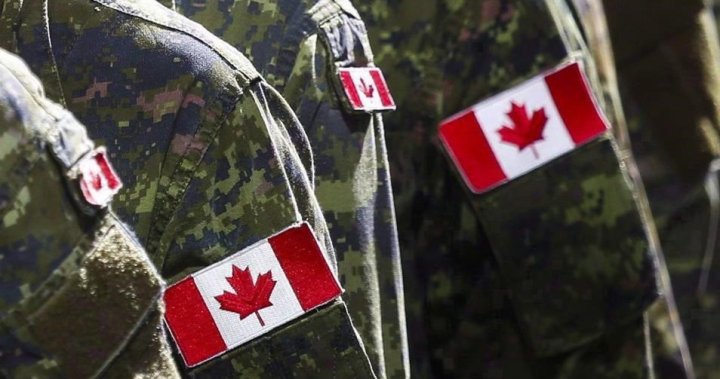THE Canadian Armed Forces no longer automatically disqualifies applicants with certain medical conditions such as allergies and ADHD as it works to improve its numbers and increase the size of the Canadian military.
In an interview with The Canadian Press, Chief of the Defense Staff General Jennie Carignan said the four medical conditions that will now be assessed when applying for admission are attention deficit disorder with hyperactivity, anxiety, asthma and allergies.
Carignan previously said that any applicants arriving with an allergy were immediately disqualified.
“Nowadays, with the technology that we have, that might not be the case, unless you have a very, very serious case of allergy and in the business or, you know, operational areas that you choose, you may not have access to the medical support to allow you to, you know, continue,” she said.
Carignan said changes to military entry medical standards took effect in January.
“We have to understand that the things that are diagnosed today were not diagnosed many years ago,” Carignan said, adding that diagnostic tools are “much more sophisticated” than they used to be. 30 or 40 years ago. “It’s about adapting to today’s environment while also exercising risk management.”

Given that the changes were made recently, Carignan said it “will take a little time” to see their impact.
However, several other changes have already made “a big difference” in terms of offerings and welcoming future CAF members, she said.

Receive weekly health news
Receive the latest medical news and health information every Sunday.
For example, Carignan said the Army changed security rules last fall, with new members no longer needing the same level of security.
“Instead of having a bottleneck right at the front and making people wait for a longer period of time, we bring them on board and continue to work on the level of security, because not everyone needs to have top-secret clearance when they enter the country. recruit training,” Carignan said.
Carignan said that CAF has also worked to “digitize” and “modernize” its tools for recruiters in order to better manage files and monitor arriving people. There is constant communication with them to “humanize the process”.
In this wide-ranging interview, Carignan also discussed the CAF’s goals of building a diverse force, sexual misconduct, its involvement in wildfires and emergency responses, and Canada’s relationship with the US military, which she described as “extremely strong”.
According to data provided by the Canadian Armed Forces, the force’s population at the end of last year was 87,638 people, compared to the target of 101,500 people.
In recent years, Carignan said the CAF has only managed to achieve about 60 to 65 percent of its recruiting goal. Just months after changing the enlistment process, she said the enrollment rate was already just above the 80 percent mark.
“I am cautiously optimistic that we will be able to meet the goal this year,” Carignan said. “There is a lot of interest out there, now it’s about converting that interest into actual offers and selections for Canadians coming to our door to join the CAF.”

The Chief of Defense Staff said the organization is looking at a recruitment target of around 6,500 for the year and is above the 5,000 mark “with plenty of “other files ready to be processed”.
“We are on track to achieve our goal,” Carignan said, noting that on the reserve side, more recruiting is still needed. “We want to make sure Canadians understand that their military needs them. »
Carignan said the CAF’s attrition rate is also “very healthy,” at about eight or nine percent. She said the organization works to improve retention, particularly at the middle management level, by providing its members with career opportunities, prioritizing work-life balance and supporting families with childcare and access to housing.
However, military data suggests that less than a third of service members believe the military “provides a reasonable quality of life for service members and their families.”
Carignan said the retention rate is being monitored very closely with the aim of surpassing the current personnel target by 2032, as Canada will need “additional CAF members to exploit the brand new capabilities that we will be offered in the coming years.
Christian Leuprecht, a professor at the Royal Military College and Queen’s University, said it makes sense for the CAF to be flexible and adjust its requirements so it can fill significant personnel shortages and provide equality opportunities for Canadians wishing to serve in the armed forces.
“The organization is 15,000 members short, I think at last count, so it’s going to require some compromise because there are only so many unicorns,” Leuprecht said. “Generally speaking, if someone is capable of performing military activity properly, why would we deny them? »
Leuprecht said different standards have always been in place for different types of occupational groups, pointing out that the military continues to employ many members who were injured in the line of duty, even though they would not be eligible for these injuries if they applied on the street.
“I don’t see that this seriously compromises the ability of the military to perform their task given that we still think that every military member should be able to be an infantryman in a trench somewhere, but of course most military personnel perform tasks that require extremely talented people who just couldn’t serve in the trenches for all sorts of reasons,” Leuprecht said. “Everyone is facing labor constraints, and other employers have adjusted their expectations. and do it regularly, just like military.”
“The skills that are needed in a soldier today are not necessarily the same as 10 or 20 years ago,” he said.





